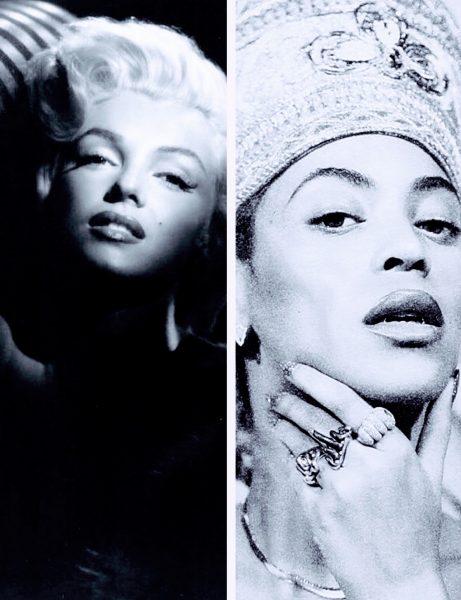
Reviewing Beyoncé’s recent Coachella performance for Vox, Constance Grady argues that the singer is a truly iconic star because she embodies and resolves a specific problem of our time, with an interesting reference to Marilyn:
“One of the things that separates a star who will fade from an icon who will last is this: Icons can reconcile a major cultural paradox through the power of their images. A star is a person onto whom the rest of us project all of our fantasies and fears, so when the star is able to resolve one of those fears, to make us feel that it is meaningless and insignificant just for as long as we’re looking at them, we love them for it. We turn them into icons.
Marilyn Monroe is the prime example here. Marilyn was both pure sex and pure innocence at once, in a time that was profoundly anxious about sex and women’s bodies. You didn’t need to be worried about whether sex was corrupt or dirty when you looked at Marilyn because she made sex feel innocent just by existing as Marilyn.
Today, you might think of Angelina Jolie, who is both a sex symbol and a mother figure, or Oprah, who is both our wise, empathetic, and selfless best friend and a brilliant businesswoman mogul: They have resolved a contradiction that we don’t like, and because of that, we love them.
The Bey Paradox does the kind of work that made Marilyn Monroe an icon. It takes one of the major questions our culture frets over — Should women be naturally beautiful/good at their work/perfect in general? Or should they take pride in working hard and earning their perfection? — and it answers, yes. Both. Natural perfection and high-maintenance perfectionism, both at the same time.
Beyoncé dreams it and works hard, and then she wakes up flawless. That’s what makes her Queen Bey.”